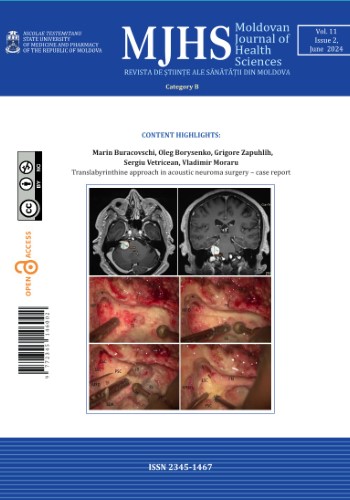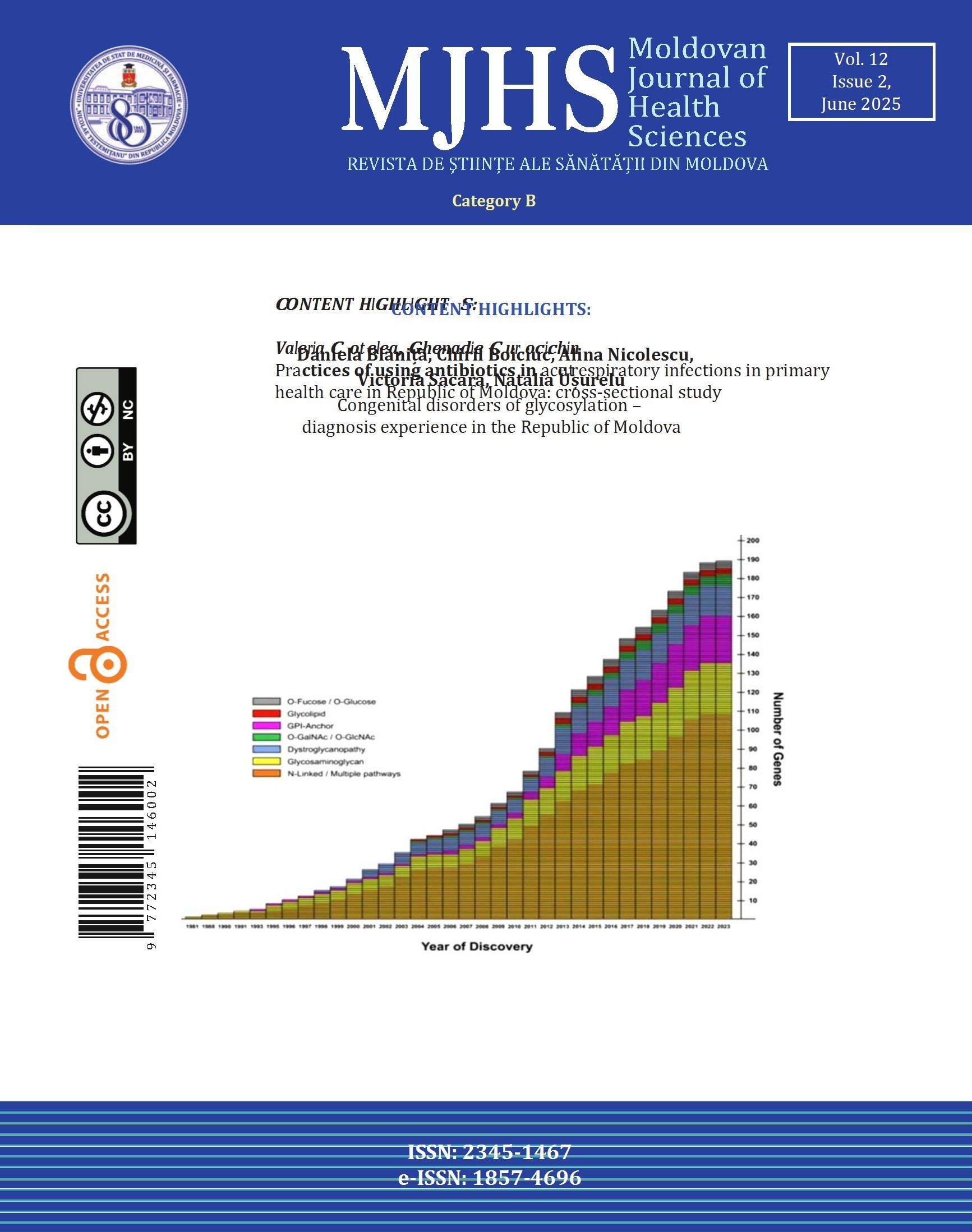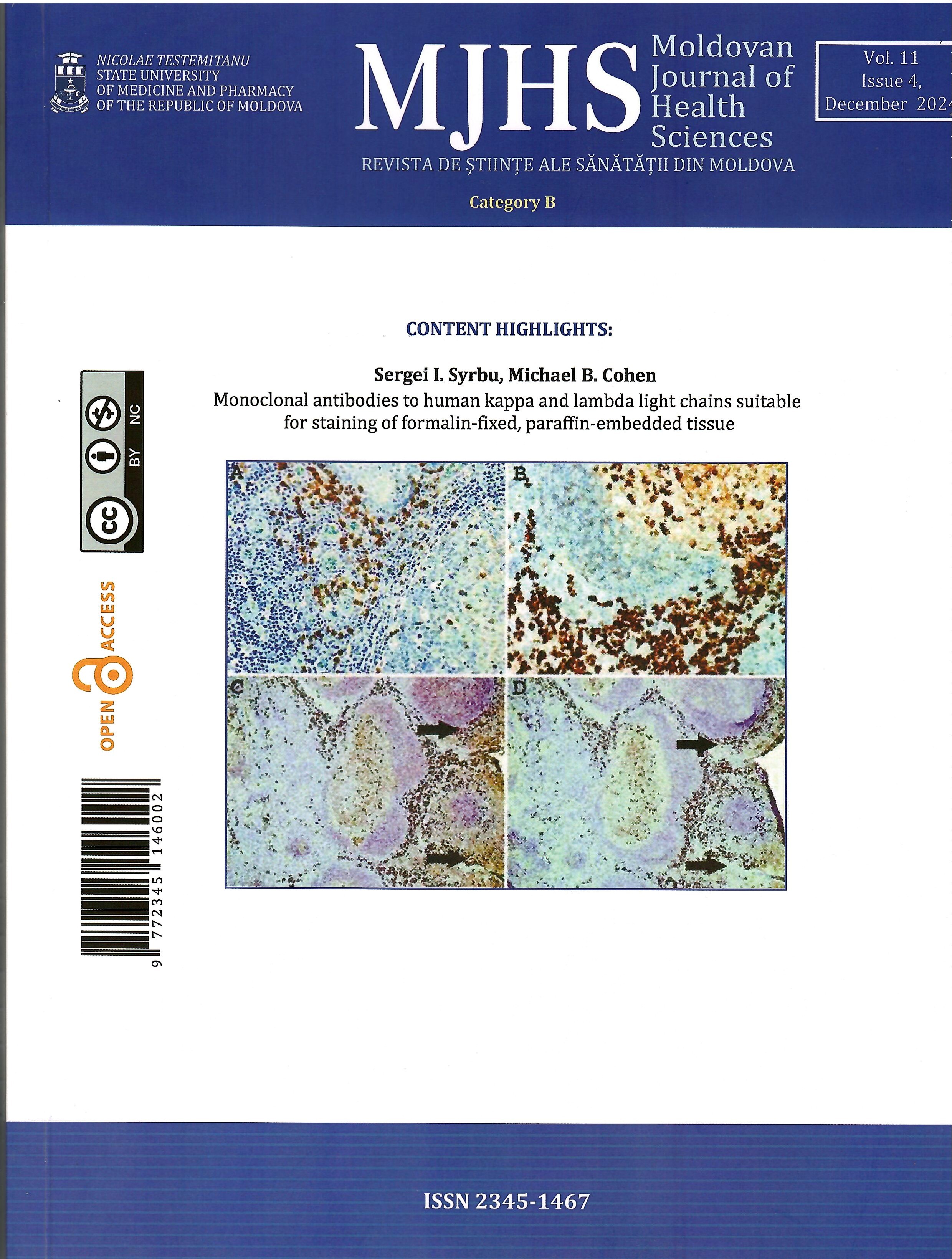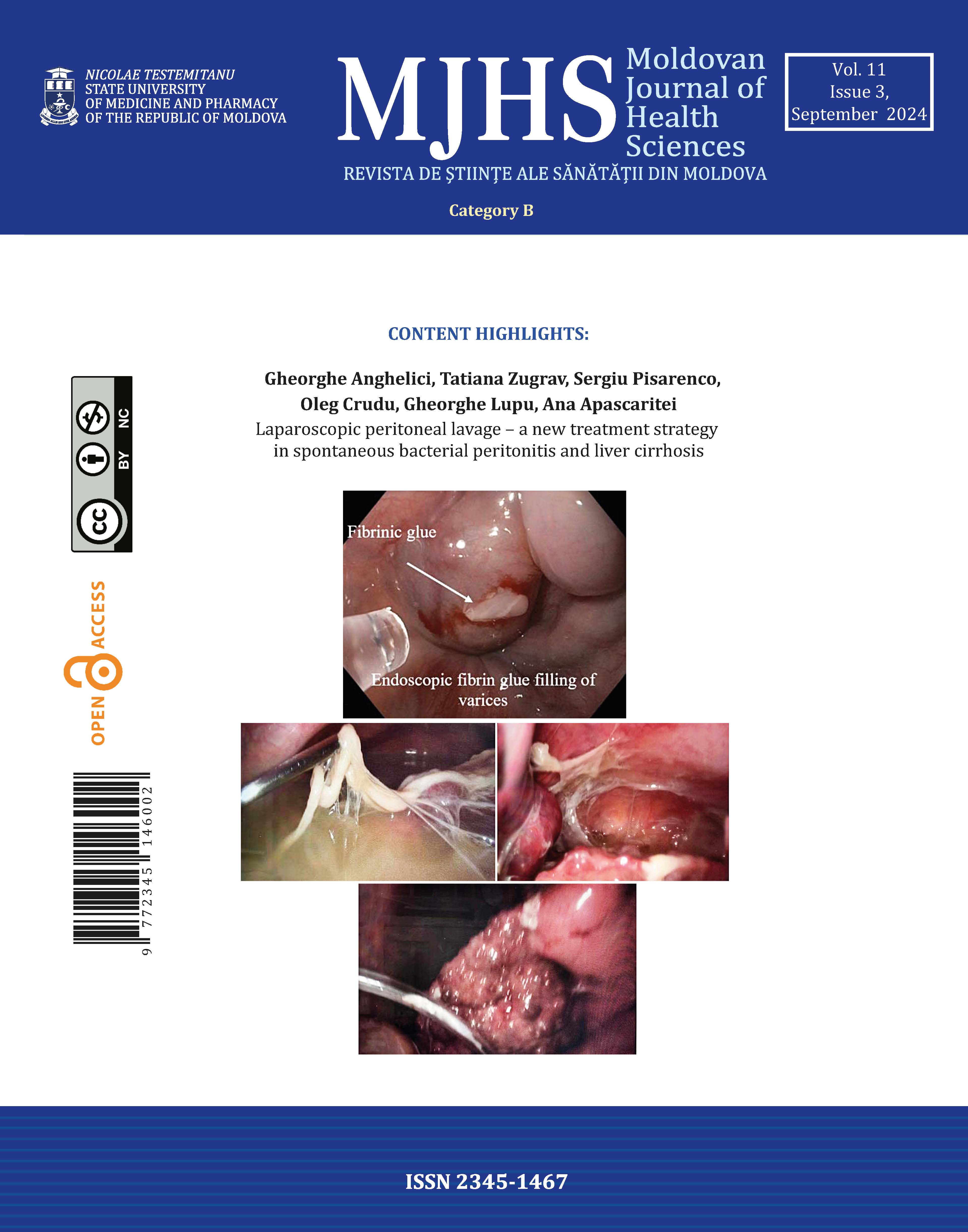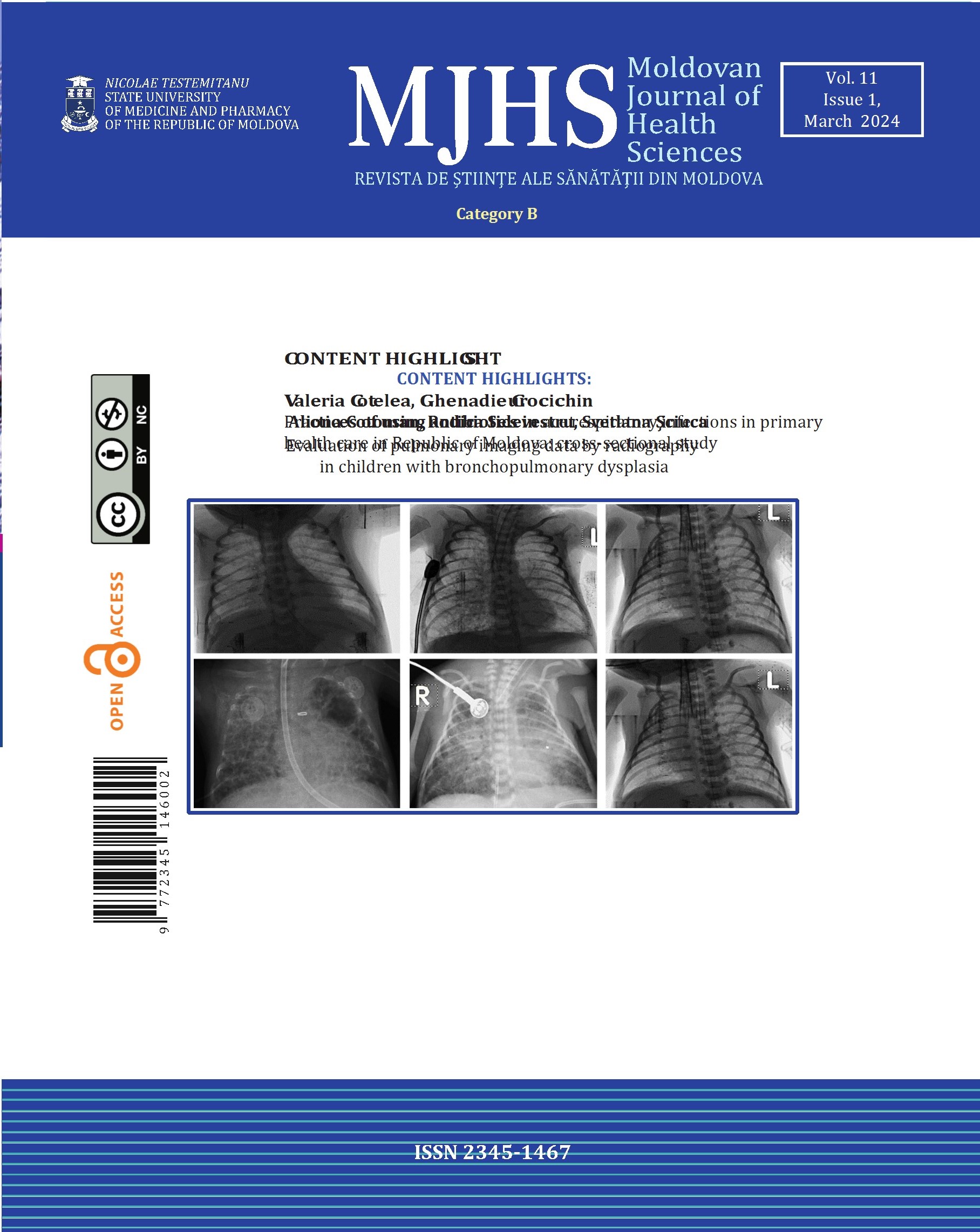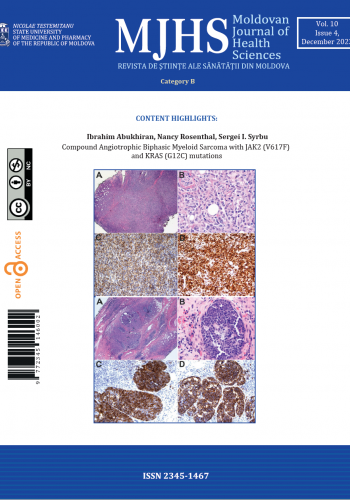Clinical and paraclinical approach to community-acquired pneumonia in obese individuals
https://doi.org/10.52645/MJHS.2024.2.01
Introduction
Obesity is a metabolic disease that presents a real challenge for the medical system due to the significant increase in the number of obese people in recent decades. Currently, 38% of the global population is overweight or obese. Obesity is an important risk factor for multiple chronic pathologies and lung infections, especially pneumonia. For obese subjects, chronic proinflammatory status due to an excess of fat cells is characteristic.
Material and methods
This prospective cohort study is based on clinical and laboratory examinations of patients hospitalized with community-acquired pneumonia in the Department of Internal Medicine at „Holy Trinity” Municipal Hospital, Chisinau, Republic of Moldova. The study included 210 patients with community-acquired pneumonia, divided into two groups: the base group (group 1) consisted of 105 patients with varying degrees of obesity, and the control group (group 2) consisted of 105 normal-weight patients. The research was conducted according to the principles of the Helsinki Declaration - WMA Declaration of Helsinki - Ethical Principles for Medical Research Involving Human Subjects. The study was approved by the Research Ethics Committee of the Nicolae Testemiţanu State University of Medicine and Pharmacy, with the issuance of favorable opinion no. 46 from March 27, 2018. All patients were examined clinically and paraclinically (radiological examination, pulse oximetry screening, complete blood count, erythrocyte sedimentation rate, fibrinogen, LDH, C-reactive protein, oxidative stress markers). The obtained data were statistically analyzed using Statistical Package for the Social Sciences (SPSS) version 20.
Results
According to the obtained data, the most common comorbidities associated with obesity were cardiovascular and metabolic diseases. The main symptom that prevailed in the obese was dyspnea (97%). Obese subjects showed more frequent signs of acute respiratory failure (86.7%), required oxygen therapy with an average duration of 7.62±6.23 days, showed increased serum levels of LDH (286.31±94.66 U/L) and C-reactive protein (66.08±71.44 mg/l), data that influenced the clinical course of pneumonia.
Conclusions
Patients with obesity and community-acquired pneumonia presented with infectious symptoms and acute respiratory failure, increased values of inflammatory markers, and required oxygen therapy more frequently compared to those of normal weight.
